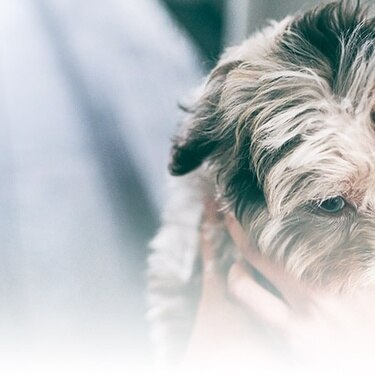
-
Find the right food for your petTake this quiz to see which food may be the best for your furry friend.Find the right food for your petTake this quiz to see which food may be the best for your furry friend.Featured products
 Adult Wet Dog Food with Beef
Adult Wet Dog Food with BeefHill's Science Plan Adult Multipack Wet Dog Food with Chicken, Beef & Turkey are complete premium pet foods for adult dogs from 1 year. Your dog will love these deliciously smooth and savoury minced loaves, formulated for balanced nutrition and overall health.
Shop Now Mature Adult Dog Food
Mature Adult Dog FoodHill's Science Plan Mature Adult Multipack Wet Dog Food with Chicken & Beef are complete premium pet foods for mature adult dogs from 7 years. Your dog will love these deliciously smooth and savoury minced loaves, formulated to deliver the appropriate amount of energy to support the needs of adult dogs.
Shop Now Puppy Food
Puppy FoodHill's Science Plan Puppy Multipack Wet Dog Food with Chicken & Beef are complete premium pet foods for growing puppies from weaning until 1 year old and for pregnant and nursing dogs. Your puppy will love these deliciously smooth and savoury minced loaves, formulated for balanced nutrition and overall health.
Shop NowFeatured products Light Adult Multipack Wet Cat Food with Chicken & Ocean Fish
Light Adult Multipack Wet Cat Food with Chicken & Ocean FishTender chicken chunks in gravy for cats, with L-carnitine and fewer calories for ideal weight management. Packed with high-quality protein, omega-6s, and vitamin E for shiny fur and healthy skin.
Shop Now Mature Adult Wet Cat Food with Chicken
Mature Adult Wet Cat Food with Chicken
Tender chicken chunks in gravy for mature adult cats. Made with easy-to-digest ingredients, high-quality protein for lean muscle maintenance and antioxidant vitamins C+E for optimal health.
Shop Now Adult Multipack Wet Cat Food with Beef, Ocean Fish & Chicken
Adult Multipack Wet Cat Food with Beef, Ocean Fish & ChickenTender chunks in gravy for cats, with high-quality protein to maintain lean muscle. With vitamin E and omega-3s & -6s for healthy skin and balanced minerals to support healthy vital organs.
Shop Now -
Dog
- Dog Tips & Articles
-
Health Category
- Weight
- Food & Environmental Sensitivities
- Urinary
- Digestive
- Joint
- Kidney
-
Life Stage
- Puppy Nutrition
- Adult Nutrition
- Senior Nutrition
Cat- Cat Tips & Articles
-
Health Category
- Weight
- Skin & Food Sensitivities
- Urinary
- Digestive
- Kidney
-
Life Stage
- Kitten Nutrition
- Adult Nutrition
Featured articles Show some love with wet foods: a great choice for pets with health issues
Show some love with wet foods: a great choice for pets with health issuesShow some love with wet foods: a great choice for pets with health issues.
Read More The Incredible Science Behind Your Pet's Microbiome
The Incredible Science Behind Your Pet's MicrobiomeLearn what your pet's microbiome is, how it contributes to your pet's gut and overall health, and why nutrition is important in maintaining healthy microbiomes.
Read More The Right Diet For Your Pet
The Right Diet For Your PetIn people, the right diet is very important. If you are eating the wrong way for your metabolism, activity level, age and lifestyle you could end up with health issues.
Read More -

Initial


Tasty Tips
Related products

Hill's Science Plan Sensitive Stomach and Skin Small & Mini Adult Dog Food with Turkey is a complete premium pet food for small breed adult dogs aged 1–6 years. This deliciously soft mousse is enriched with ingredients that support digestive health & skin care.

Hill's Science Plan Perfect Digestion Small & Mini Adult Dog Food with Turkey is a complete premium pet food for small breed adult dogs aged 1–6 years. This deliciously smooth mousse is precisely balanced to deliver the appropriate amount of energy and to support digestive health in adult, small breed dogs.

Hill's Science Plan Adult Small & Mini Dog Food with Turkey is a complete premium pet food for adult small dogs from 1 year old that are prone to weight gain or slightly overweight. This deliciously smooth mousse is formulated to deliver the appropriate amount of energy to support weight maintenance in adult dogs.

Hill's Science Plan Sensitive Stomach & Skin Adult Wet Dog Food with Chicken is a complete premium dog food for adult dogs from 1 year. This savoury tinned loaf is enriched with ingredients that support digestive health & skin care.
Related articles

Learn effective tips for feeding a dog that's a picky eater and ensure proper nutrition for a finicky eater. Discover tips for pet parents at Hill's Pet UK.

Many human foods are dangerous to dogs. Read about 5 of the worst toxic food offenders that can kill your dog - and how much it takes to hurt them.

Learn about the potential health risks of a raw diet for dogs and why they aren't the best option for your pup or you.

How, when and what to feed your new puppy is an important decision, learn more about the things to consider for feeding your puppy.

Put your dog on a diet without them knowing
Our low calorie formula helps you control your dog's weight. It's packed with high-quality protein for building lean muscles, and made with purposeful ingredients for a flavourful, nutritious meal. Clinically proven antioxidants, Vitamin C+E, help promote a healthy immune system.
Put your dog on a diet without them knowing
Our low calorie formula helps you control your dog's weight. It's packed with high-quality protein for building lean muscles, and made with purposeful ingredients for a flavourful, nutritious meal. Clinically proven antioxidants, Vitamin C+E, help promote a healthy immune system.

